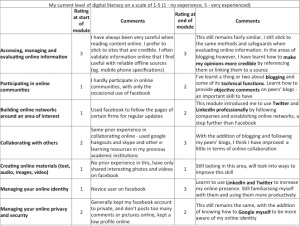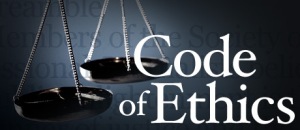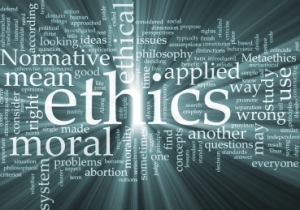
A final note
Introduction
This module has essentially done two things for me. First, it has given me a greater awareness of the depth of the online cosmos – i.e. the amount of online acitivities one can take part in and the amount of online activities, tools and mediums that are already present. Second, it acted as a slight catalystic change for me to embrace online mediums more.
Digital literacy review
Lets review the digital literacy audit first.
Continue reading →









